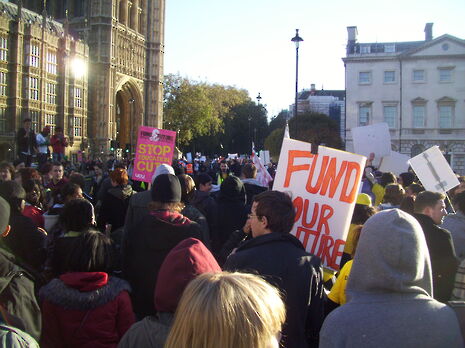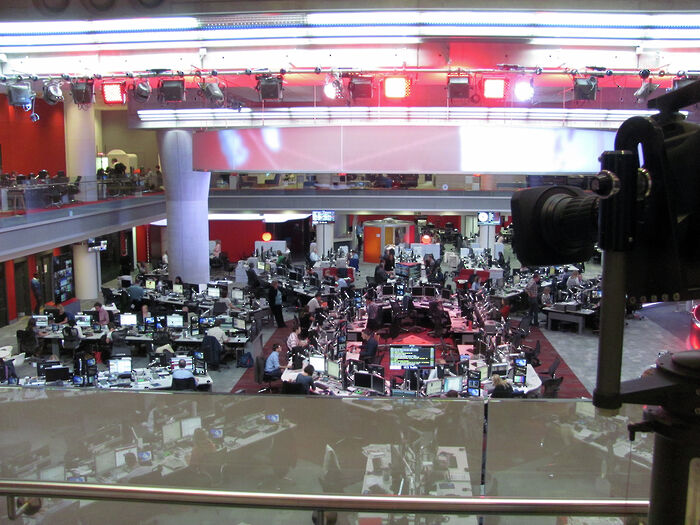Busting the ‘snowflake’ myth: students are as engaged and argumentative as ever
Roger Mosey, Master of Selwyn College and former BBC News Editor, draws on his experience in both the media and the world of academia to argue that, contrary to popular opinion, rigorous debate is thriving at Cambridge

Sometimes friends from outside the academic world ask me for an update on the culture wars they read about in their newspapers. Has an army of Snowflakes encircled Cambridge? Are we college heads now enrolled in re-education camps? And what’s it like coping with the yawning chasm between generations?
“The bile and the verbal violence in the national debate are unsettling, and they’re emitted by people who should know better”
The answer is that I seldom recognise the portrait of universities that the media loves – particularly, the ‘barmy Oxbridge’ with its alleged combination of privilege and political correctness. In reality, this seems to me to be a lively and appropriately disputatious place in which students do what students have always done: they seize on ideas, they test them and they come to their own conclusions. Talk of an ‘intellectual monoculture’ is ludicrous.
I’m also struck by the charm and rationality of most of our students compared with older generations. Every time I look at Twitter, there are politicians and commentators from two sides of an argument screaming at each other, particularly about Brexit. The bile and the verbal violence in the national debate are unsettling, and they’re emitted by people who should know better. By contrast, I’ve had numerous conversations with students about Brexit which are measured and focused on how we can find the best outcome for the UK and the EU. And it’s reassuring that there is a diversity of opinion too: a number of prominent Selwynites were unabashed advocates of the Leave campaign, even though a majority of the college and the university were supporters of Remain.
I feel particularly strongly about the right to have your own opinion and to speak freely because I’m a former journalist; and my job, as editor of the Today programme or head of BBC television news, was to bring a wide range of views to our audiences. There should be a quest in public service media for analysis, certainly, and respect for experts. But our political discourse is best served by enabling people of all persuasions to have access to the airwaves. At times this can be uncomfortable, especially when you seek guests from across the world; and they can range from deniers of democracy to extremist nationalists. But the nastiest views shrivel under public scrutiny – as the BNP’s Nick Griffin found on the BBC’s Question Time programme in 2009, when he debated with, amongst others, a Labour minister. Griffin’s party has now, thankfully, almost vanished. I’m with the Washington Post’s slogan that ‘democracy dies in darkness’; and when there is the spotlight of accountability, it’s extremism that perishes.
It’s a similar case with universities. Free speech matters, and as long as it’s legal I’m in favour of that freedom being exercised. I regret any sense in which the Prevent legislation risks inhibiting that, and we should defend the traditional rights of academics and of citizens to say what they believe – and to have those views scrutinised. That is overwhelmingly what happens in Cambridge. I’ve hosted speakers from the left and the right in the events we hold at the Selwyn’s Master’s Lodge, and it was particularly interesting to witness a vigorous debate last year between our students and the Daily Mail’s Richard Littlejohn. I hold no brief for the Mail: it has roasted me on many occasions, including recently as one of the alleged Lefties running Cambridge. But it reaches millions of voters in Britain and you can’t challenge them effectively, if that is your choice, without at least knowing what they think and why.
There’s an important point here about the progress there has been in bringing people who were previously on the margins of society fully into our national life. There’s more to be done, but on gender and sexuality and race some important battles have been won. It would be perverse now to seek to shut down the voices that were formerly the majority but are losing the war. We have gone from homosexuality being illegal at the start of 1967 to same-sex marriage by 2014. So feel free to tackle homophobia, just as we may take on the misogynists and the racists and totalitarians of all hues – but don’t imagine they will ever win, and consider that it might be the threat of martyrdom that would give them a flicker of life.
I know most students get this. I continue to be impressed by their intelligence and their readiness to engage with the complexity of the modern world. Cambridge’s greatest strength remains its commitment to the rational and to the long-term, and I’ve every hope that will continue
 News / 27% of Cantabs have parents who attended Oxbridge13 June 2025
News / 27% of Cantabs have parents who attended Oxbridge13 June 2025 News / Downing’s rugby team apologises over ‘inexcusable’ social media post12 June 2025
News / Downing’s rugby team apologises over ‘inexcusable’ social media post12 June 2025 News / 2025: The death of the May Ball? 13 June 2025
News / 2025: The death of the May Ball? 13 June 2025 Comment / Why Cambridge needs college chapels11 June 2025
Comment / Why Cambridge needs college chapels11 June 2025 News / Academics seek to restrict University’s use of injunctions 16 June 2025
News / Academics seek to restrict University’s use of injunctions 16 June 2025





